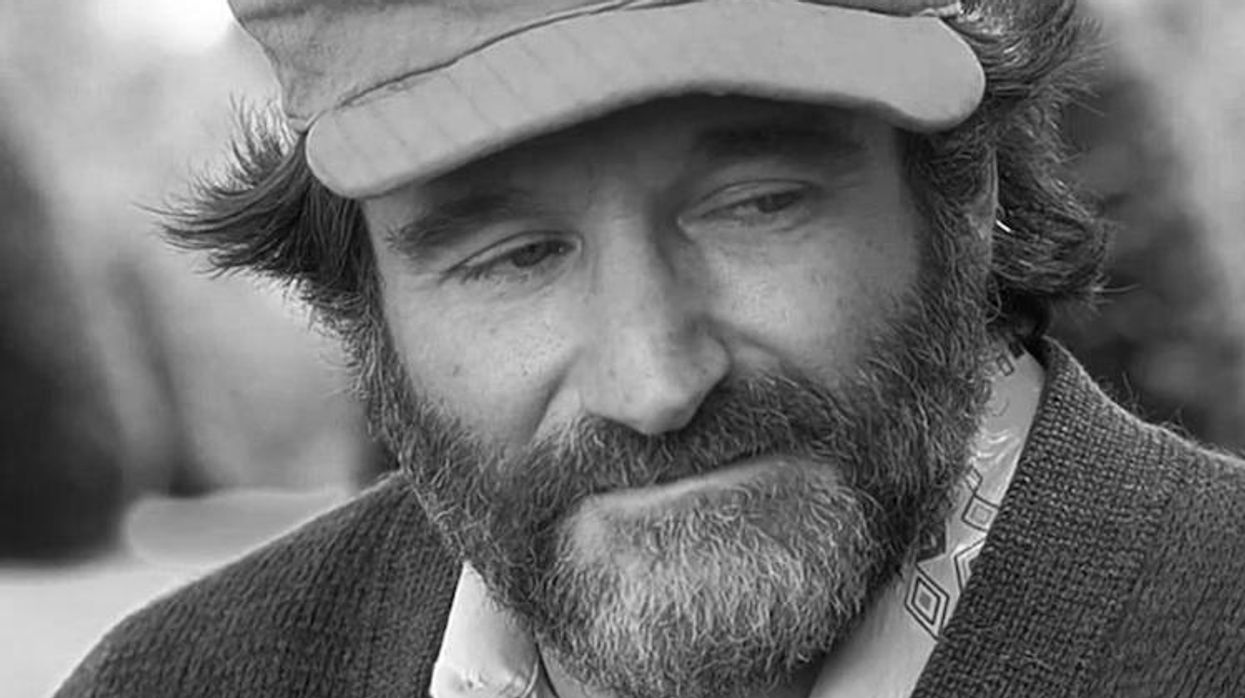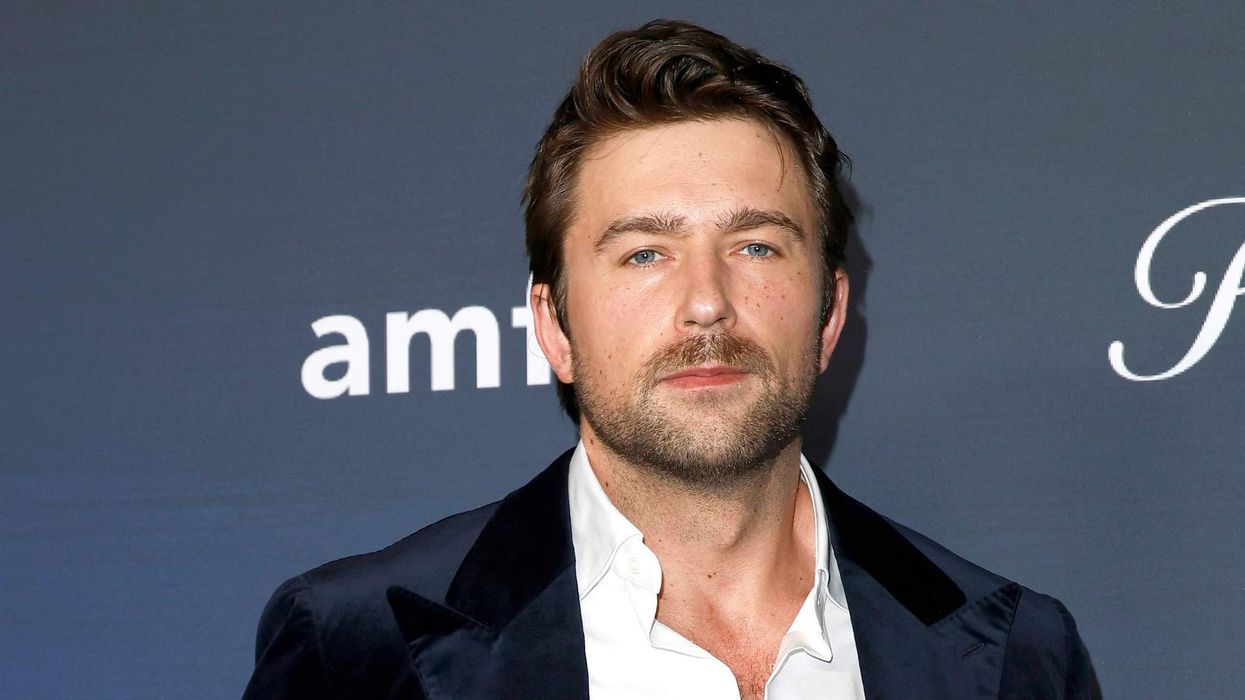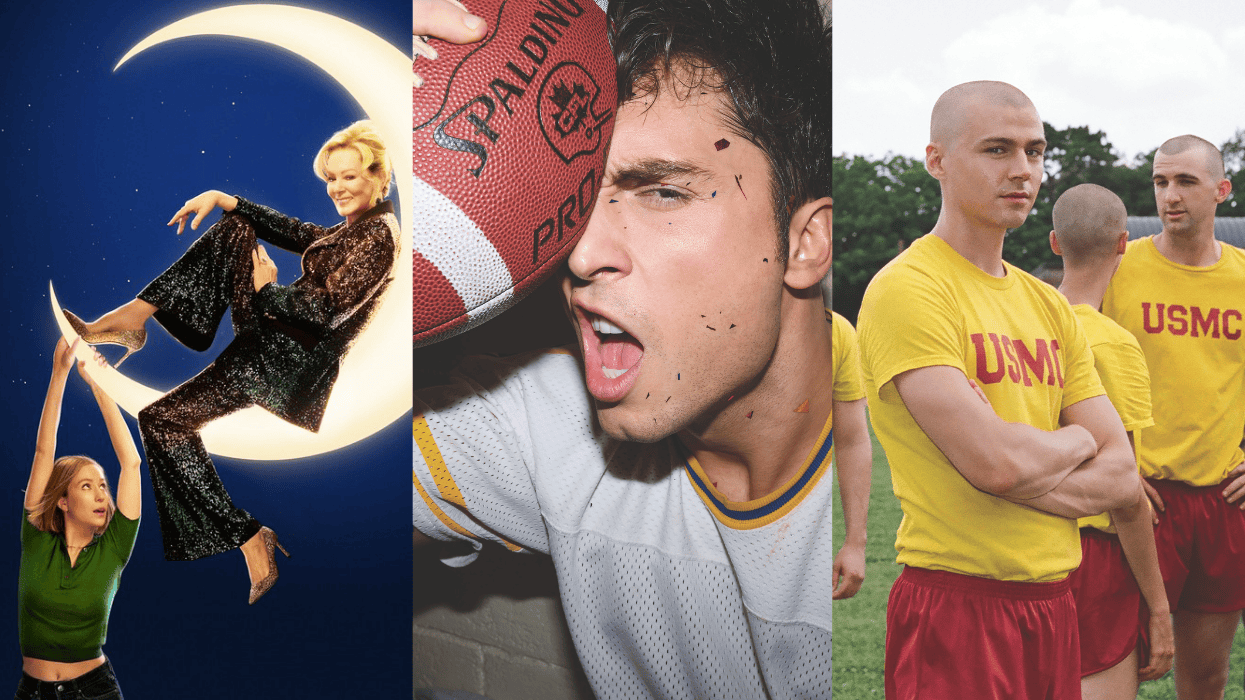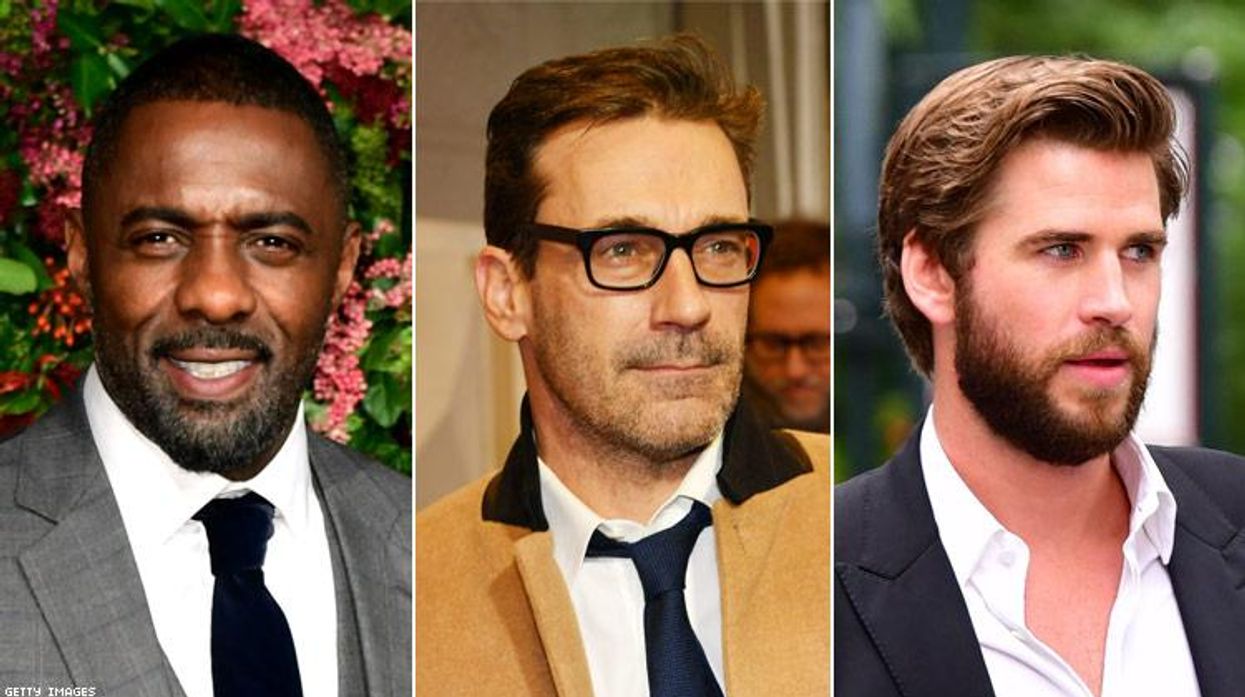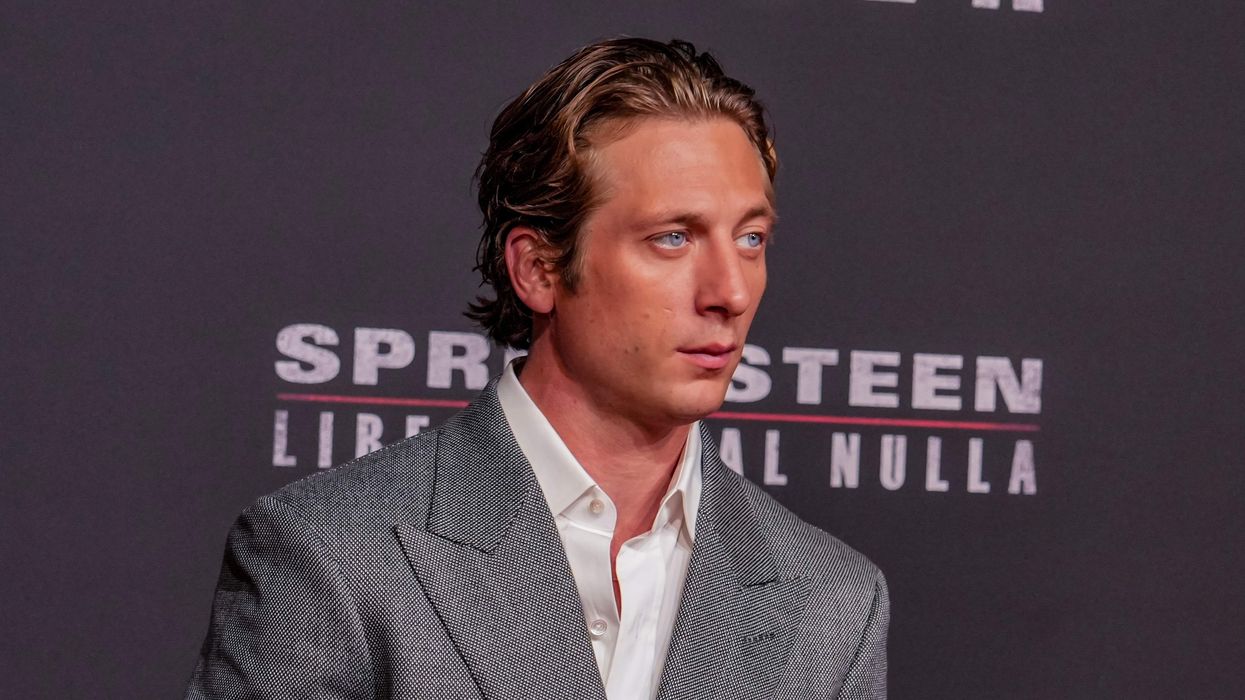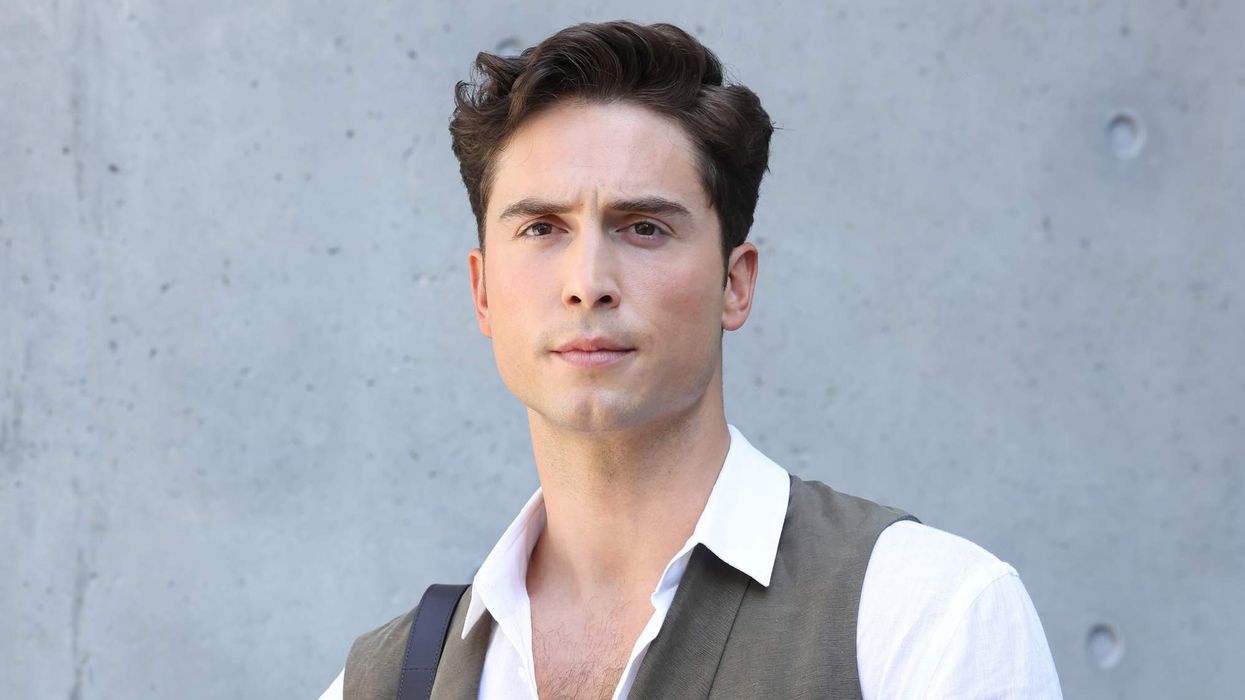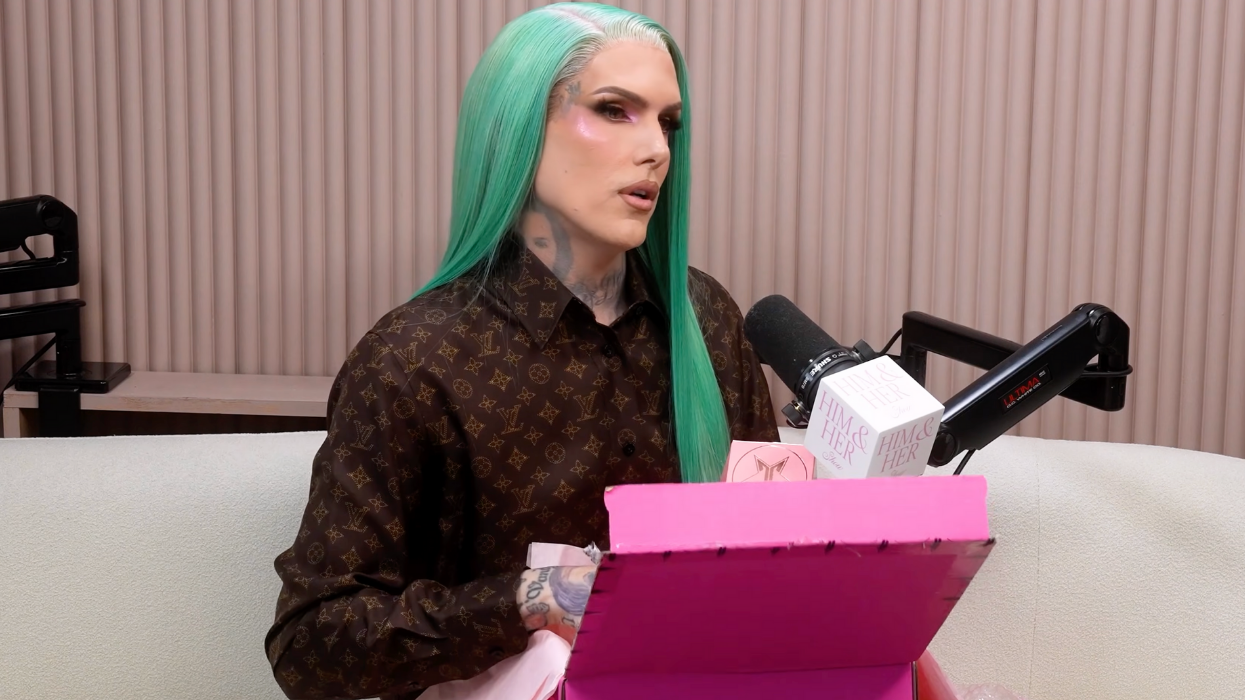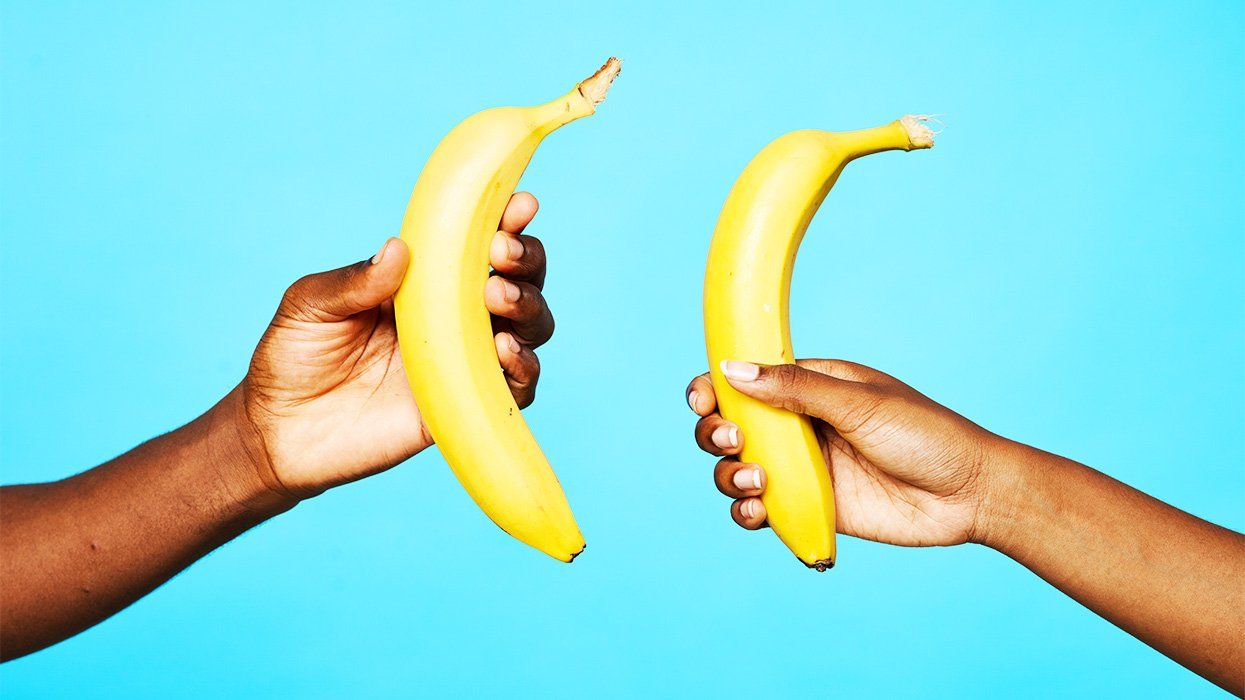As I prepared earlier this summer for his final feature film role in director Dito Montiel's Boulevard -- in which he plays a closeted married man who has long suppressed his desires until he hires a male hooker for companionship -- I can't stop reflecting on the fact that, although the outpouring of grief may have dissipated, the fact remains that I'm still coming to terms with how my fantasy father ultimately failed me by killing himself.
Williams had been a force in my life since I was a boy. My own father loved the silly Mork from Ork and his "Nanu nanu." He owned the rainbow suspenders that became a fad, and I had my own child-sized pair, my dad's miniature doppelganger. Although the TV show's jokes were too adult for me to quite understand, I bonded with Williams' puckish grin, transposing it on Dad's face.
A plumber in the military, a young father struggling to make ends meet for his wife and four young children, my father was quick to smile, hug, or dust the gravel out of a skinned knee and tell me that he loved me. Dad was also strong and brutish, whipping us with his belt if we got out of line or pissed him off for some minor infraction.
When I was 12, our family of six moved to Kadena Air Force base in Okinawa, Japan, from another military base in nowhere Texas. I was looking to reimagine myself in my new home that fall when I saw Dead Poets Society. The middle-aged hippie teacher for my "Talented and Gifted" class provided no preamble to our film field trip, but we knew she meant for us to soak in the film, steeped in classic literature, and learn something profound. The story of privileged white young boys at an all-male boarding school captured my imagination: This was the world I wanted and wouldn't take for granted. It's what I deserved, especially the teacher Mr. Keating, played by Williams, an ornery and impish Socratic father figure, who urged his pupils: "Carpe diem! Seize the day!" The message I retained: "Don't be ordinary." From then on, when confronted with a decision, I would silently remind myself it's far better to regret the chance taken than the one never tried.
"Stop being a know-it-all," was the constant criticism I heard from both my parents, as if knowledge, rather than empowering, would be my downfall. I suspected Dad was also a secret know-it-all, that if he'd been given the chance, he would have been a "smarty pants" like me. I kept silently waiting for him to notice my talents--for art, for music, for anything involving words--and take interest, deciding he'd sacrifice everything for his first born, the child he'd named after himself, to have a chance at being a wunderkind. Instead, confused by my curiosity, he seemed to ignore my attempts to stand out, threatened by my voracious reading habits and need to explore the esoteric. I began reading in secret by the light filtered through my blinds from the streetlights so I wouldn't be scolded, and I searched for outside mentors. An eighth grade language teacher told me she thought I was special and leant me a cassette tape by the German band Enigma, which was mostly in Latin and used foreign chants as backing chorus to a dance beat. My dad snatched it away, noticing the quasi-religious artwork and the song titled "Principles of Lust," and assumed it was occult sexual propaganda. He put the tape in his stereo, plugged in headphones and sat for 45 minutes, listening to the entire thing.
"Some sort of devil crap," he said dismissively, tossing it at the floor of my bedroom door, without making eye contact. (He gave less time to my sister's explicit NWA cassette, stomping the "n****r" music to bits beneath his polished military boot.) This macho, masculine guy was not the the father I wanted. I kept searching for that eager coach, a guide, the Mr. Keating who would understand some deep inner part of me and help midwife it into the world.
After his Dead Poets role, I adored Williams as the fractured madman/genius in Terry Gilliam's The Fisher King and lapped up the giddy antics of Toys and Mrs. Doubtfire. I was in college and had come out to my family and friends years ago in high school, so by the time The Birdcage premiered in 1996, I was ready for Williams to be my nurturing gay dad. No one wanted to go with me, so it felt transgressive to sit in the dark South Georgia movie theater in the summer after my freshman year. Boys in that town would always put a "fag seat" between themselves and another guy, so people wouldn't get the wrong idea. Although Williams' preening Armand and the flamboyant Albert played by Nathan Lane were cultured and cool, owning a South Beach hotel with drag queens, I didn't relate to these gay stereotypes. However, I could understand the son's shame toward his parents, his need to hide his meager heritage so he could pass in upper-class society. I didn't want to be held back by my unchosen family's lack of pedigree or refinement and would create my own family of likeminded people.
Then came Williams' inspirational psychologist in Good Will Hunting, the man to inspire Matt Damon's misunderstood working-class genius. The details are hazy--I don't think I've even seen the film since it debuted--but I left the theater in tears, relating to the boy who needed to be rescued by an understanding guru.
Now firmly transplanted in New York, I feel liberated, able to leave my own father's lifestyle behind and forge ahead. Since then, I'd watched Williams in Night at the Museum (repeatedly) with my nephew, but I confess I was not a super-fan and hadn't followed his television and film career in recent years. I saw his inspired Broadway performance as the titular beast in Last Bengal Tiger at the Baghdad Zoo, but the last movie I'd loved him in was Death to Smoochy, a dark comedy that was universally panned by critics, but which I felt was ahead of its time. So, just as I've grown distant from my biological family, labeled the odd eldest who lived in the big city, I forgot about Robin Williams, my erstwhile papa.
Although a heartfelt performance, Williams' tortured, closeted husband character in Boulevard wasn't the final image of him I wanted to be left with. So after Williams' death opened this unnamed ache, I searched for Good Will Hunting clips on YouTube, and recalled what it was that affected me so. The message he deployed to cherubic Will -- "No one could possibly understand the depths of you" -- was the one I longed for my own father to sense and articulate to me. Mixed with the repeated psychological refrain, "It's not your fault," I felt the same tightening in my throat.
But the reality of Williams after his suicide -- a deplorable husband and father, who was wracked by depression and psychological issues -- has ruined that dream dad of my youth. Instead, I've come to realize how misguided and selfish I'd been all these years. I thought my own father hadn't measured up when he was, in fact, my constant defender and supporter, even happily accepting me and my relationship with my boyfriend, now husband -- without any problems. I'd spent decades fantasizing of some fantastic epiphany for him to be the Hollywood version of the perfect papa, when what I wanted to hear already happened when he hugged me and said: "I'm proud of you, son."


